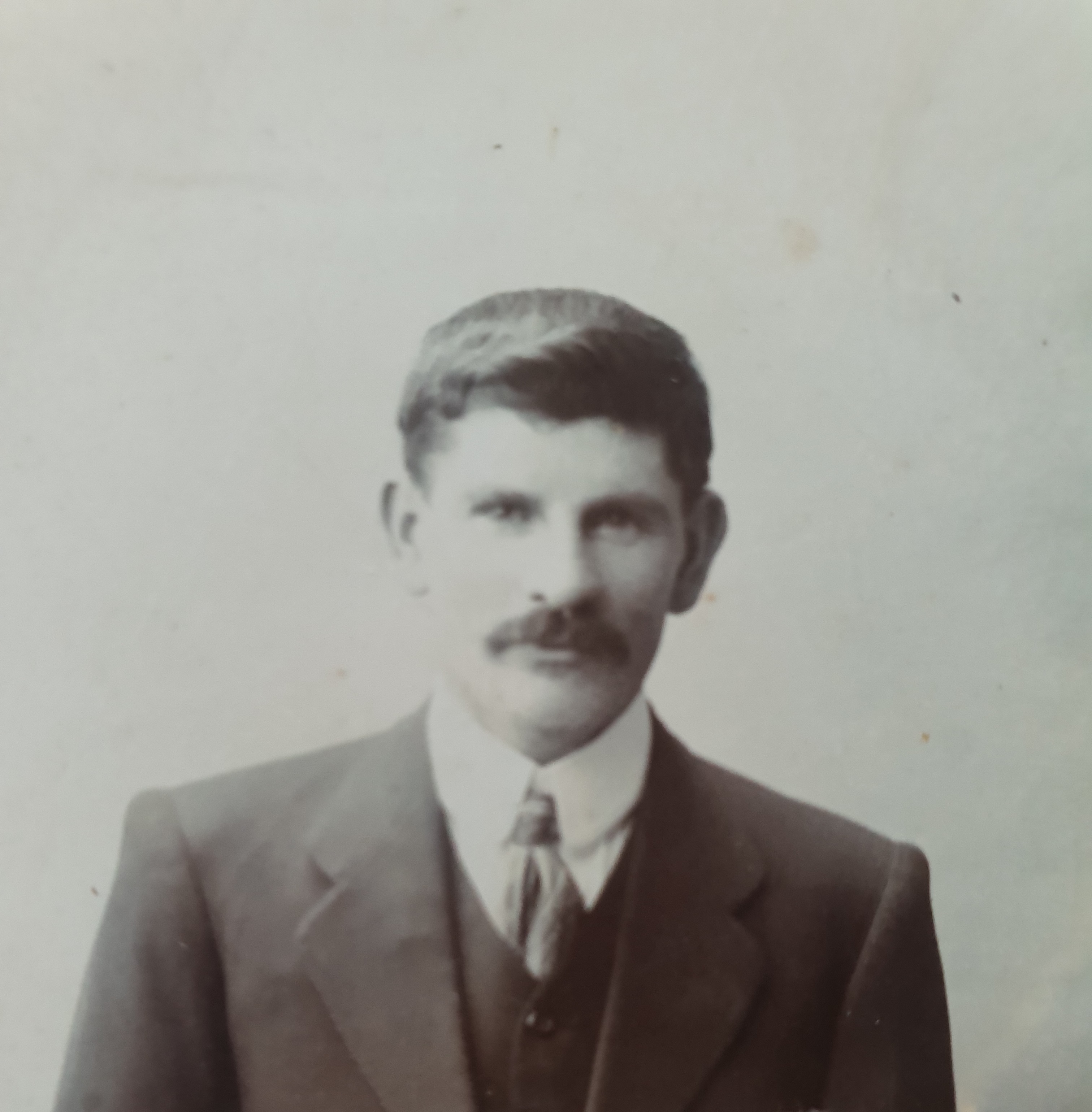Pte
Alexander Kay
Informations sur naissance
|
Date de naissance: 29/09/1885 |
|
Lieu de naissance: Waitati, Otago, New Zealand |
Informations générales
|
Profession: Machinist |
Informations service militaire
|
Pays: New Zealand |
|
Force armée: New Zealand Expeditionary Force |
|
Rang: Private |
|
Numéro de service: 49413 |
|
Incorporation date: 30/01/1917 |
|
Incorporation nom de lieu: Dunedin, Otago, New Zealand |
|
Unités: — Otago Regiment, 1st Bn. (Dernière unité connue) |
Informations sur décès
|
Date de décès: 27/12/1917 |
|
Lieu de décès: Molenaarelsthoek, Zonnebeke, Belgique |
|
Cause du décès: Killed in action (K.I.A.) |
|
Âge: 32 |
Cimetière
|
Buttes New British Cemetery, Polygon Wood Parcelle: XXIII Rangée: D Tombe: 20 |
Distinctions et médailles 2
|
British War Medal Médaille |
|
Victory Medal Médaille |
Points d'intérêt 3
| #1 | Lieu de naissance | ||
| #2 | Lieu d'enrôlement | ||
| #3 | Lieu du décès (approximatif) |
Mon histoire
Alexander Kay was born on 29 September 1885 at Waitati, a small settlement north of Dunedin, New Zealand. His parents, James and Anna Kay, were Scottish immigrants to New Zealand in the 1860s.
When he enlisted on 30 January 1917, Alexander was a machinist for Michaelis, Hallenstein and Farquhar, a company of tanners, curriers and leather merchants of Dunedin. The company had a large tannery at Sawyers Bay, Port Chalmers, where Alexander worked and lived.
He entered the 27th Reinforcement but was soon posted to the Signals section, Specialist Company of the 28th Reinforcement. Training in New Zealand was lengthy and he did not embark until 14 July 1917 on the troopship Waitemata. This ship stopped at Cape Town and the troops continued on the Omrah and Norman, arriving in Plymouth in late September.
There was more training at Sling Camp with the Canterbury and Otago reserve battalions before posting to 1st Otago Battalion (14th Company) on 11 November 1917, in Belgium.
The New Zealand Division was in the Polygon Wood area, after the end of the Third Battle of Ypres. Much of the time was spent in wiring, repairing crumbling trenches and improving defences. The landscape was covered with waterlogged shellholes.
The 1st Otago Battalion had been involved in the attack on Polderhoek on 3 December 1917, receiving heavy casualties. Between 22-27 December it was back in the front line at Polygon Wood, again working on improving defences. Alexander Kay was killed on 27 December, just at the time the battalion was relieved. It is likely he was killed by shellfire. As his body was recovered and buried, he would have been within the battalion area at the time of death.
He is now buried in Buttes New British Cemetery, Polygon Wood, Plot XXIII, Row D, Grave 20.
When he enlisted on 30 January 1917, Alexander was a machinist for Michaelis, Hallenstein and Farquhar, a company of tanners, curriers and leather merchants of Dunedin. The company had a large tannery at Sawyers Bay, Port Chalmers, where Alexander worked and lived.
He entered the 27th Reinforcement but was soon posted to the Signals section, Specialist Company of the 28th Reinforcement. Training in New Zealand was lengthy and he did not embark until 14 July 1917 on the troopship Waitemata. This ship stopped at Cape Town and the troops continued on the Omrah and Norman, arriving in Plymouth in late September.
There was more training at Sling Camp with the Canterbury and Otago reserve battalions before posting to 1st Otago Battalion (14th Company) on 11 November 1917, in Belgium.
The New Zealand Division was in the Polygon Wood area, after the end of the Third Battle of Ypres. Much of the time was spent in wiring, repairing crumbling trenches and improving defences. The landscape was covered with waterlogged shellholes.
The 1st Otago Battalion had been involved in the attack on Polderhoek on 3 December 1917, receiving heavy casualties. Between 22-27 December it was back in the front line at Polygon Wood, again working on improving defences. Alexander Kay was killed on 27 December, just at the time the battalion was relieved. It is likely he was killed by shellfire. As his body was recovered and buried, he would have been within the battalion area at the time of death.
He is now buried in Buttes New British Cemetery, Polygon Wood, Plot XXIII, Row D, Grave 20.
Sources 2
|
Byrne AE., Official history of the Otago Regiment, NZEF in the Great War 1914-1918, (Dunedin, J. Wilkie and Co, 1921), pg. 242-243. Sources utilisées |
|
Stewart H., The New Zealand Division 1916-1919 : a popular history based on official records, (Auckland, Whitcombe & Tombs Ltd, 1921), pg. 316-319. Sources utilisées |
Complément d’informations 5
|
Commonwealth War Graves Commission Database https://www.cwgc.org/find-records/find-war-dead/casualty-details/480318 |
|
Namenlijst (In Flanders Fields Museum) https://namenlijst.org/publicsearch/#/person/_id=1221caaa-ff59-496d-9c1a-ece6ea65fe7a |
|
Lives of the First World War (Imperial War Museum) https://livesofthefirstworldwar.iwm.org.uk/lifestory/7177463 |
|
The NZEF Project (UNSW Canberra) https://nzef.adfa.edu.au/showPerson?pid=134871 |
|
Online Cenotaph (Auckland Museum) https://www.aucklandmuseum.com/war-memorial/online-cenotaph/record/c8030 |
